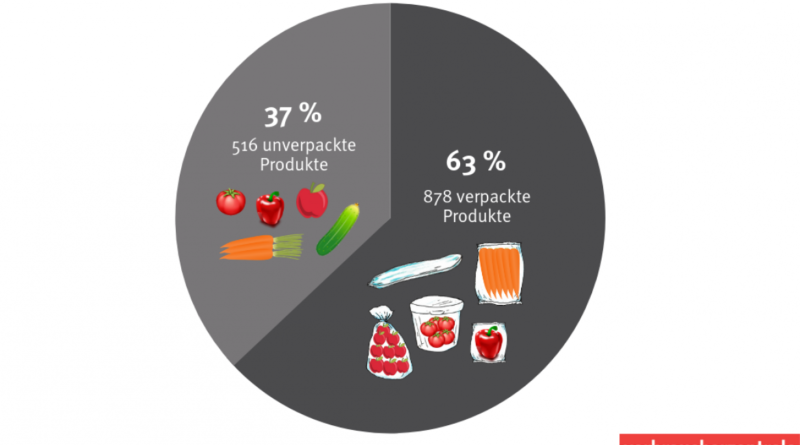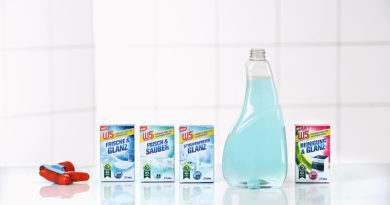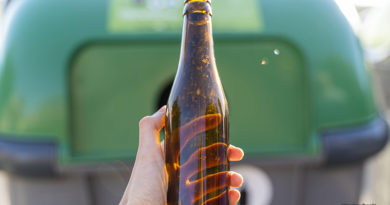Plastic alert: tomatoes are taking over from cucumbers
Which vegetables and fruits are most often packaged in plastic? The Verbraucherzentrale Hamburg and the Bundesverband Verbraucherzentrale (Federation of German Consumer Organisations – vzbv) have compiled a ranking.
While food retailers and manufacturers claim publicly that they are using less and less plastic, the Hamburg consumer organisation says that fruit and vegetables are still sold too often in plastic packaging. The result of a non-representative study in 42 stores of eight grocery chains and 1,394 units of tomatoes, carrots, peppers, cucumbers and apples shows that about two thirds of fruit and vegetables are sold in plastic packaging (graphic: Verbraucherzentrale Hamburg). At the discounters Aldi and Penny (six stores of each were surveyed), the plastics ratio was particularly high at 81 and 74 per cent respectively, while at Edeka it was significantly lower at 48 per cent. Although often criticised, the salad cucumber scored comparatively well in the random sample market check, with a plastic ratio of “only” 43 per cent. Now, the tomato is the target for consumer protection. A total of 360 packaged tomatoes compared with only 103 unpackaged ones, which corresponds to an average plastic ratio of 78 per cent. In a Kaufland store, 14 out of 16 different tomato varieties were packaged in plastic, or 88 per cent. At one Lidl and Penny store each, the ratio was even higher with nine packaged varieties and one unpackaged (90 per cent).
Another result of the study is that unpackaged fruit and vegetables are often more expensive. In significantly more than half of the 162 price comparisons, the unpackaged variant was more expensive. Consumers could save money by not using plastic with only about one third of the variants.
“It is not enough to offer consumers reusable net mesh bags if they’re mostly dealing with pre-packaged products on the shelves. The trade has a duty to increase the supply of unpackaged fruit and vegetables. Some stores are already showing that this is possible. Discounters in particular still have to do their homework,“ comments Klaus Müller, Chairman of the Federation of German Consumer Organisations.
ADVERTISEMENT
 In the food industry, the requirements are diverse and expectations are high. FachPack is the place that brings together buyers and vendors on a level playing field. More information can be found here.
In the food industry, the requirements are diverse and expectations are high. FachPack is the place that brings together buyers and vendors on a level playing field. More information can be found here.
In addition, consumer protection experts are complaining that berries such as strawberries, blueberries and raspberries are often only sold in plastic containers, especially out of season. “Cardboard packaging is only available from regional suppliers in high season. Grapes are also only sold in plastic trays or open packs made of plastic film. Unpackaged grapes are virtually no longer seen at large retailers.” The Federation also explains, “In the case of herbs, the disproportion between packaging and content is particularly stark. 15 grams of herbs usually come in with plastic packaging of at least the same weight.”
Organic fruit and vegetables are also very often sold in plastic packaging, even though there are initial attempts to reduce the amount of outer packaging. Anyone who wants to buy organic without plastic has to go to organic supermarkets or specialist organic retailers, according to the vzbv.




